Seeing better
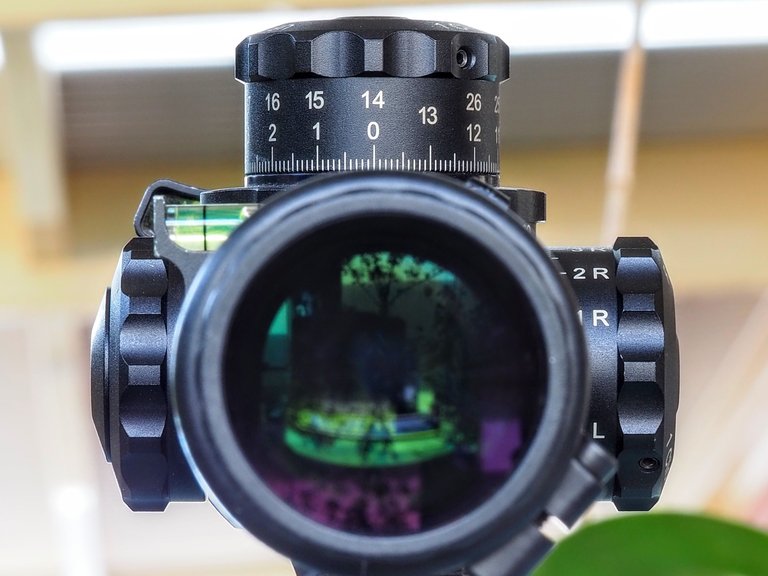
There's advantages to seeing better whether it's seeing one's physical surroundings, into people's characters, motives and motivations or within ourselves with greater clarity; more information leads to better evaluation, planning, goal-setting and outcomes.
I've owned and operated firearms for around thirty four years and over the time have become familiar and proficient with many different firearms. I've been trained and sought additional knowledge and understanding around the firearms themselves, how to most effectively use them and the systems and processes that are also required such as making my own ammunition, setting up the equipment and of course improving my shooting skills. I've enjoyed the journey and still learn to this day and no matter whether shooting hand guns, shot guns, rifles or other iterations of the firearm I find a lot of interest...it's not just about shooting.
I spend some of my time passing on the vast wealth of knowledge I've gained along the way, mostly on long range shooting which I am highly proficient in, and that's what I've been doing with a person over the last several months, someone I know well who would like to learn how to put rounds on at great distance, I mean well over a mile, (1609 metres).
We've been working through the process from start to finish and a lot of that has involved lengthy discussions and theory about aerodynamics, how the weather, (wind and humidity), altitude and azimuth and Coriolis effect long range shots, plus physics, chemistry, mathematics, the equipment and set up and human factors just to name a few. It's very complex and mastering each element is critical to the process and to putting accurate and repeatable rounds on target at long ranges in various conditions and for those shots to be effective, do what they are supposed to do when they impact on the target whatever that may be.
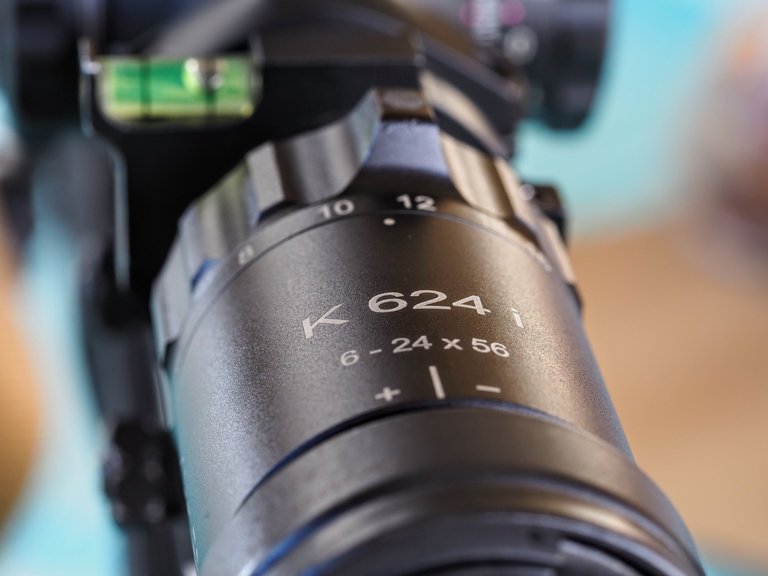
One of the biggest limitations of long rang shooting is the human operating the firearm.
Not understanding how the body affects the shot and where it lands down range will ultimately end in misses and they can be costly. I've written posts about this before so won't go into it but stance, breathing, grip on the rifle, the trigger-pull, the heart beat and eyesight are some of the factors. With training these things can be controlled and with the last, the vision, well rifle scopes help with a human beings' poor eyesight.
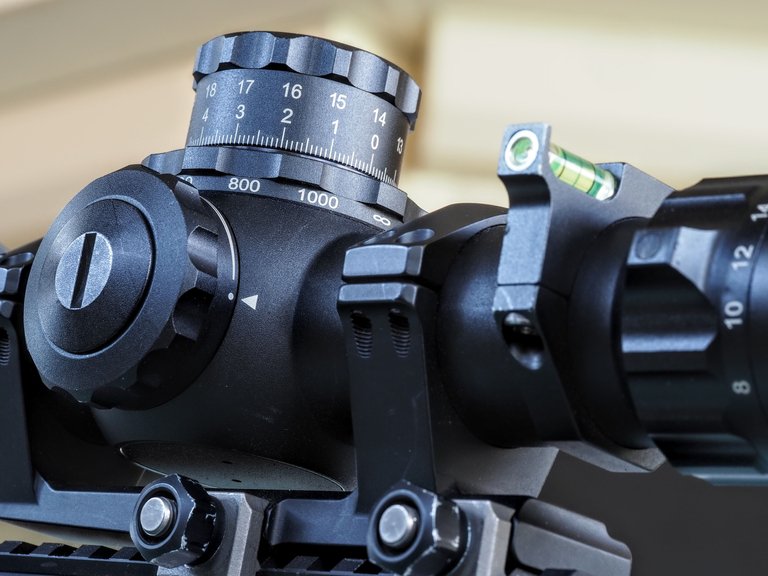
I decided to do a few shots of one of my favourite rifle scopes, my Kahles K624i6-24x56 which is an awesome bit of kit which helps me put accurate rounds on targets out past one mile (1609 metres) all day long. (Swarovski is the parent company of Kahles). I used to use Nightforce scopes a lot, and still do from time to time but I'm a Kahles man through and through.
I'm not going to go into lengthy discussions about this scope as I'd be here all day and it'd be pretty much meaningless to most people but there's a couple features I want to point out.
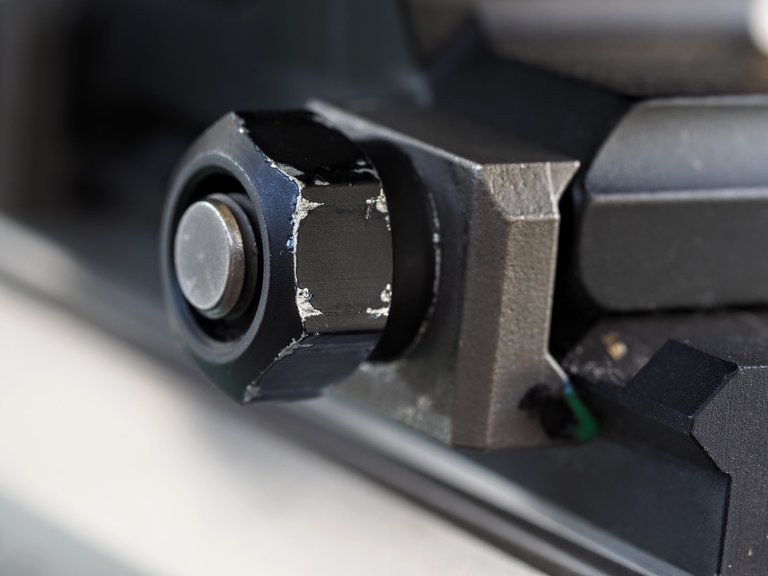
This scope is a precision-built item designed for shooting professionals, the price tag is commensurate to it's quality, that is to say it is high.
Everything about it is designed to help a shooters eye see a target better so a round can be placed with precision and accuracy. It is mounted to the rifle using a picatinny rail and top quality scope mounts (that's an important part as a poorly mounted/set up scope will be inaccurate) and has an elevation and windage turret to allow the shooter to input (dial in) adjustments as required.
The scope adjusts in MRAD (google it) and includes a parallax adjustment (google it), magnification is from 6-24 power (google it) and illuminated reticle (that dial on the left of the shot above) for reticle clarity - (google reticle) - and speaking of which, it uses the SKMR3 reticle...which you can google if you like as well. This post I wrote talks about MRAD and other things if you're interested.
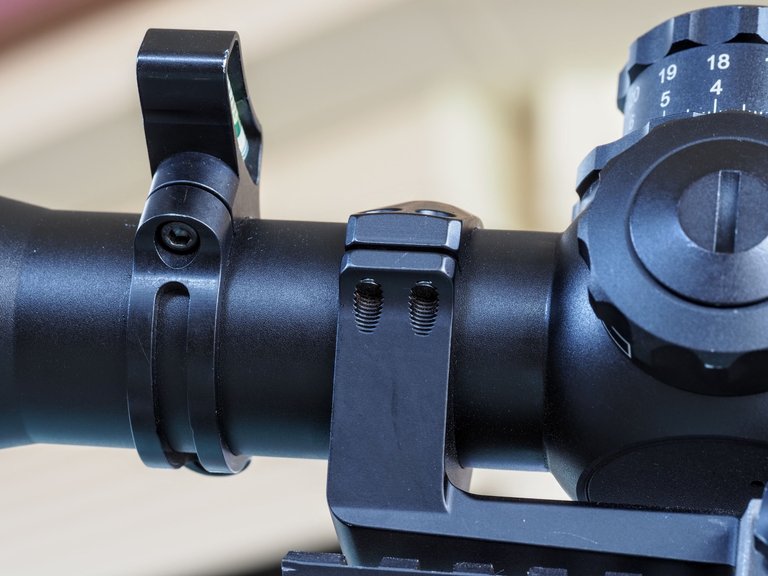
There's some other cool features like the revolution indicator, that red dot that pops up letting the shooter know he's (or she's) reached one entire revolution of the elevation turret and is on the second. It pops back down when the second-rev is dialed back tot he first-rev.
The optics are amazing (thanks Swarovski) and allow the scope to pull in light even as it fades in the environment permitting the shooter to continue to operate for longer; I use this scope into the night with only small amounts of light and it's just as effective. Most of the cheaper scopes have poor optics and the increments of elevation and windage become more inaccurate the further the shooter dials; with this scope the increments are 0.1MRAD all the way to the very limit of the turret - That's why it's costly and cheap scopes are rubbish.
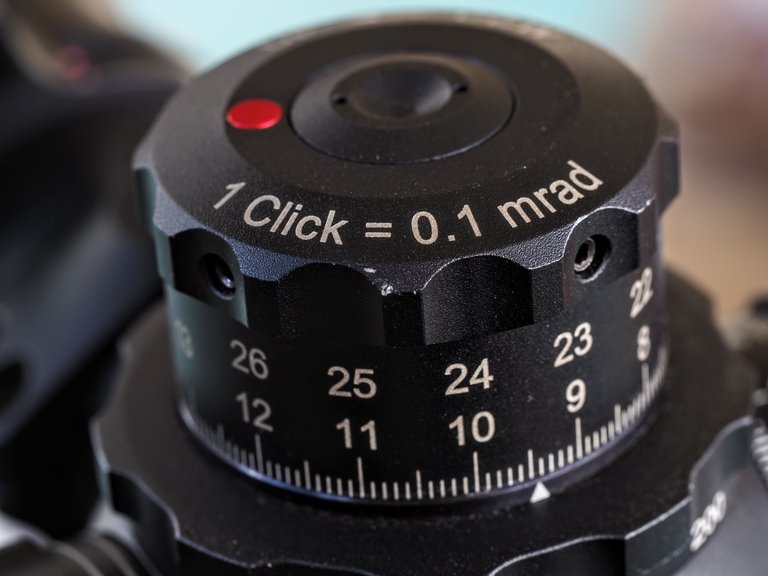
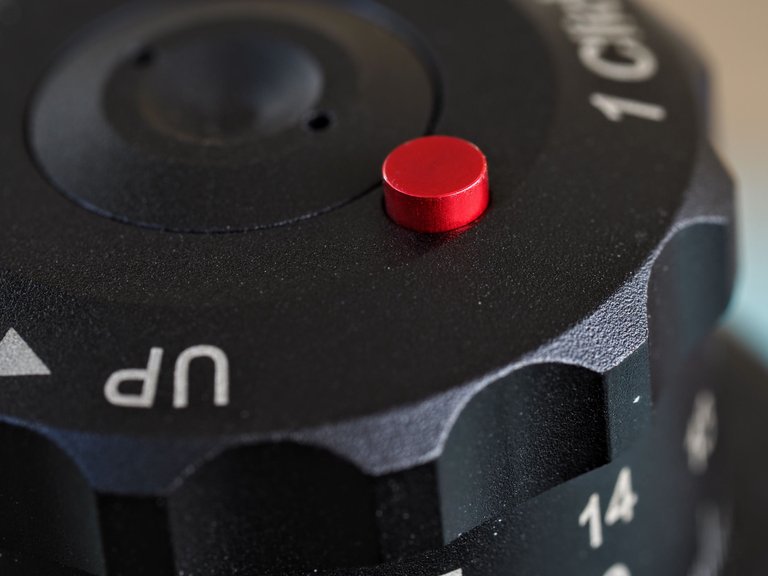
You'll also notice a couple bubble levels on the scope which I have mounted (and set up) myself. The bubble levels are a requirement for long range shooting; sure, it can be done without them but not with the same level of accuracy.
You see, when elevation is dialed into the elevation turret and the rifle is on a cant (tilted to one side or the other) adding elevation moves the point of aim away from the target. The further up one goes the further away it gets.
One wants the elevation input to move the crosshairs directly up in a straight line and, for instance, if the rifle is canted to the right the crosshairs will go up and to the right (away from the target.) This post I wrote a while ago explains it pretty simply.
You can see two scope levels mounted because I like to be prepared (and learn from failure). I had one fail once and it effected my shooting, made things more difficult, and that ended up proving costly - I'll not elaborate.
The main one is an Accuracy 1st unit, the best in my opinion as it has a ceramic marker in it rather than just a bubble which won't expand or contract at altitude like a fluid bubble will (refer last image below); it also has a tritium vial in it so it glows very faintly for night operations so it can still be utilised. The second is a (much) cheaper Vortex bubble level.
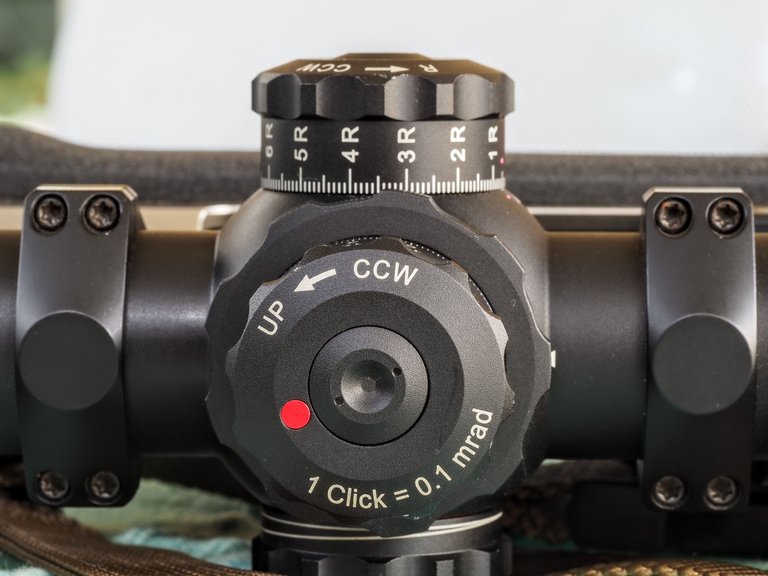
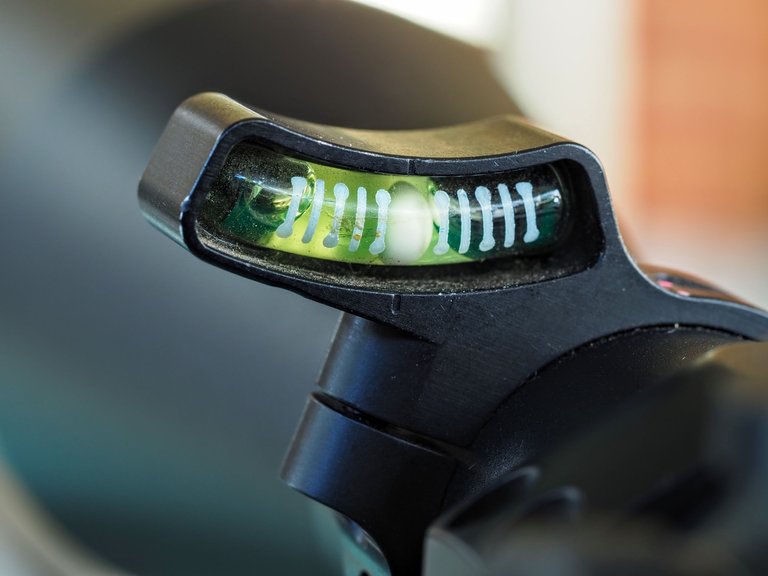
Anyway, this post is getting too long so I'll wrap it up.
If you have any questions I'm happy to some answers so feel free to comment below.
Design and create your ideal life, tomorrow isn't promised - galenkp
[Original and AI free]
Image(s) in this post are my own
How are they going? Picking it up okay in theory and in practice? Are they looking to cull too or go competitive?
This individual is a hand gun shooter and only does a little pig hunting now and then, not much over 100m mostly. A good shooter with a hand gun and handy at 100m so will pick up long range fairly well.
He was struggling with all the concepts at first, trying to get it all at once which is difficult; like most of us he wanted to run before he could walk and that's not going to work well with long range.
He's also not got the equipment required so is using some of mine; sub-standard scopes make long range shooting impossible. He's shooting a .308 which should be good for 1300m accurately repeatedly and further with a reduced hit probability but his scope is a low-end Vortex (some $900 or so), ok for hunting to 300m but the more it's dialed the more inaccurate each click becomes (we box tested it) so I have loaned him one of my Nightforce scopes and he's going better.
He's comfortable at 1000m (I'd not risk standing in front of him) and is creeping out a little more each time. We're focused on accuracy and a high hit probability. With some more work around wind calling he'll be fine.
Nice. I remember shooting out to 600m with the 1.6x scope on the F88 Austeyr in the Army; and a human sized target at that distance is miniscule.
I honestly wouldn't consider myself 'effective' at that kind of distance.
Video games have instilled some unreasonable expectations about how marksmanship works.
Yep I get it...at 600m I'd be using 10-12 power on my 6-24x scope. (I actually rarely use greater than 12 but may go to 14 or 16 from time to time.)
Yep, and it has literally no correlation to the real-life thing.
Hmmm, not really much into guns but understood a bit. Beside those factors, do you believe some people have natural shooting abilities?
I have never shot even any air rifle but I remember one of my school life shooting competition where I just took part for fun but in the end I was second. Just held my breath, closed the right eye and boom. It was all unbelievable for me.. (it was a long range shooting competition)
Shooting is not a natural thing, it's an acquired skill and being a good shooter doesn't happen by accident.
Having said that, some will pick up the skill faster than others for various reasons and I have found that women tend to be better shooters than men (sooner) because they're more patient and they listen to instruction better. Most men think they know everything and fail to listen effectively thinking they know best and so they don't take instruction and their progress can be slowed because of it. I speak generally here.
Some have a more steady hand, better eyesight and judgement and those people will tend to be better shooters.
Okie understood..
Ummm, have you ever shot a human being with your gun🙂 (just asking, if you don't wanna answer you can simply ignore)
Congratulations @galenkp! You received a personal badge!
Wait until the end of Power Up Day to find out the size of your Power-Bee.
May the Hive Power be with you!
You can view your badges on your board and compare yourself to others in the Ranking
Check out our last posts:
I have never handled a gun except my father's old dane gun which he inherited from his own father. It was mainly used for hunting.
I would have loved to have the opportunities to handle guns the way you do, at least for self defense 😊
I've spent a long time becoming good with firearms and I have used the skill to good advantage; it's left me with a strong sense of confidence but also responsibility. It's something I enjoy of course too, but it has a real-world application also.
Great lesson there to take home. Seeing better will help us to be better persons and get more better professionally. And we see better through learning and acquiring information
Yep, it seems like you have captured the true message from my post.
Thank you for the lesson. It's helpful
I don't handle guns, and I've only seen sights in movies and from pictures, and I haven't seen photos this close. I didn't realize that there are a lot of settings that can be done. How long did it take you to get proficient in long range shooting?
It takes a while to understand all the concepts and one never stops learning but it can be taught to a basic level in several months of intense work including theory and practical. That's just the start though, there's always more to learn and it's a perishable skill so has to be used, practiced and honed if it's to stay sharp; I don't mean just the actual shooting but the other elements of it as well.
I see, thanks for sharing these.
I have never handled a gun but I remember the hunting guns in my grandparents' house. My grandfather loved them, he used to hunt at night and like him and my grandmother, I have inherited very good eyesight and hearing.
Both senses are not only good for hunting but for life in general, the more knowledge and the better we see, the better we will do in life, paying close attention.
I loved the details of the gun and the knowledge of its uses, a fascinating subject!
I've never loved guns, I appreciate them though, respect them, and have always been good with them and the other concepts around firearms in general; I suppose that's because I enjoy it, the challenge and all.
That's what I feel, a lot of respect for them, learning and knowing about them is fundamental in order not to make mistakes. That is admirable.
That's pretty cool. I think most of the scopes I have are just cheap Tasco ones. I hardly ever use them anyway. I have a little red dot scope on my Remington, but that is mostly for plinking anyway. This gear is very impressive!
It's important to have the right equipment for the job. I have a 22-250 with a fairly cheap-ass Bushnell scope on it for instance, $450 worth of scope, and it works fine for what I use the rifle for (foxes off the back of a truck in wheat (stubble) fields. I'd never use such a thing for long range shooting. Obviously your scopes to the intended job and that's what counts.
I was reading through trying to understand (you know that thing that I'm pretty sure most other people are doing when staring blankly at my progblogs XD) when eldest came along and said "ooh scope" after one glance at one of the images.
I'm trying very unsubtly to get him to come back on and follow you XD
He knows his firearms equipment then.
Does recognising parts count as knowing? XD Him and his friends are quite interested in firearms and associated tech. It's quite entertaining listening to their in depth discussions like they know what they're talking about.
one time when we were roleplaying and they were discussing ballistics something or other and I was like okay then you better be telling me the truth coz you could tell me almost anything and I'll believe you, and on very rare occasions threatened with I WILL CHECK WITH GALEN XD
A tritium level. Now that is a new one on me. I never researched that deeply I suppose or had the need, but very cool. When you need it, you need it. Brilliant.
Hello galenkp!
It's nice to let you know that your article will take 10th place.
Your post is among 15 Best articles voted 7 days ago by the @hive-lu | King Lucoin Curator by blind-spot
You receive 🎖 0.4 unique LUBEST tokens as a reward. You can support Lu world and your curator, then he and you will receive 10x more of the winning token. There is a buyout offer waiting for him on the stock exchange. All you need to do is reblog Daily Report 256 with your winnings.
Buy Lu on the Hive-Engine exchange | World of Lu created by szejq
STOPor to resume write a wordSTART